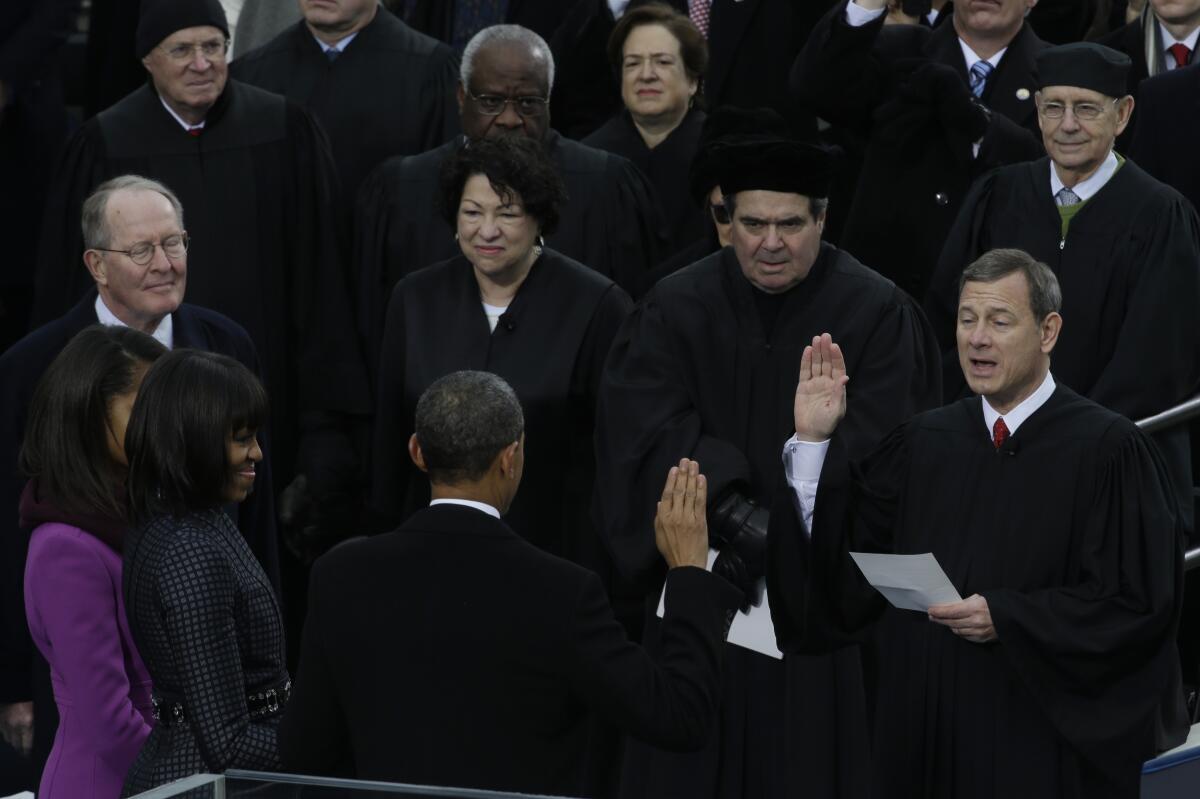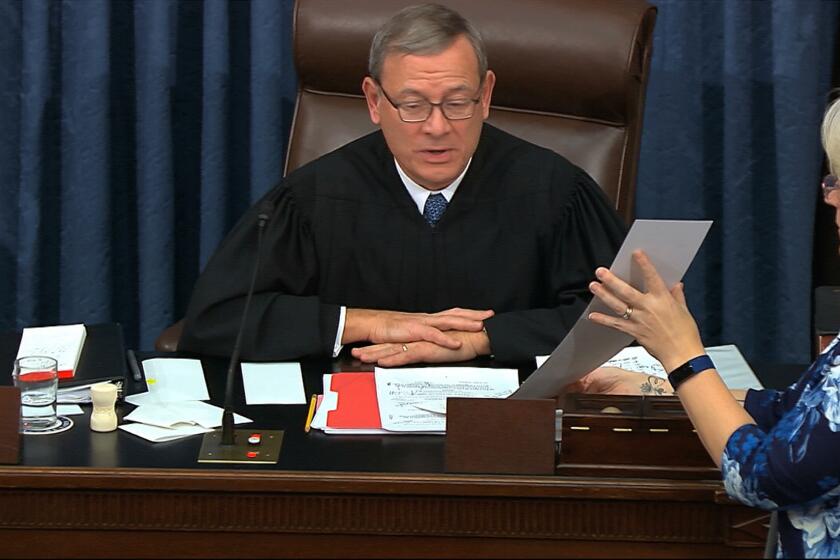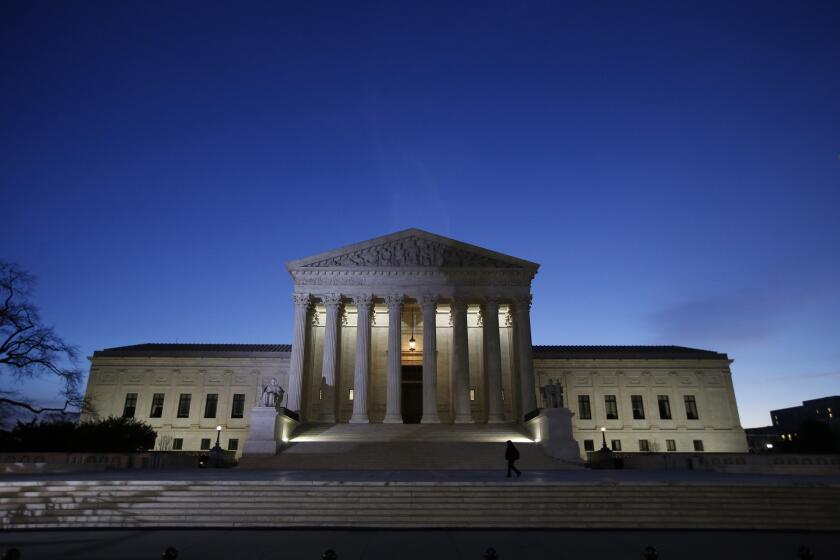Chief Justice Roberts to swear in yet another president who opposed him

- Share via
WASHINGTON — Someday, perhaps, Supreme Court Chief Justice John G. Roberts Jr. will swear in a new president who doesn’t wish someone else had his job.
Wednesday won’t be that day.
When Roberts leads President-elect Joe Biden in the oath of office, it will be the fourth time that the chief justice will stand across from a man who either voted against his confirmation to the Supreme Court or has made no secret of unflattering views of him.
Biden was one of 22 senators who voted against Roberts’ elevation to the high court in 2005. Another was President Obama, who twice took the oath from Roberts.
President Trump has also castigated the chief justice as a “disgrace” for his role in upholding Obama’s healthcare overhaul. Roberts presided over Trump’s first impeachment trial last year and could preside over his second as well.
Roberts is far from the only justice whose confirmation Biden and Vice President-elect Kamala Harris opposed. Biden, who was a senator from Delaware for more than 35 years, also voted not to confirm Justices Clarence Thomas and Samuel A. Alito Jr. Harris, before resigning as senator from California on Monday, cast votes against the the three Trump appointees to the high court: Justices Neil M. Gorsuch, Brett Kavanaugh and Amy Coney Barrett.
Chief Justice John G. Roberts Jr. tried to be neutral in presiding as a divided Senate judged Trump, but his refusal to intervene to allow witnesses vexed some.
It’s the first time in U.S. history that the incoming president and vice president have together voted against a majority of the court.
The unusual situation reflects the fact that both halves of the Democratic ticket served in the Senate at a time of increasing political polarization that found full expression in Supreme Court nomination fights.
“It’s more partisan, more polarized, more contentious than at any time since” the end of the Civil War, said Richard Friedman, an expert on Supreme Court history at the University of Michigan’s law school.
But Friedman and others dismissed the idea that bruised feelings would play any role in how justices decide cases.
To do nothing would be to accept a reactionary court for decades to come. Here’s how Democrats can fight back.
“It’s a remarkable thing what life tenure does. It can diminish the force of any kinds of grudge. You don’t need to get back at anybody,” Friedman said.
Roberts’ record on issues important to Obama and Trump offers support to the idea that deciding cases isn’t personal. He cast the decisive vote and wrote the opinion that upheld Obama’s healthcare law in 2012. He also upheld Trump’s ban on travel from several majority-Muslim countries in 2018, then ruled against Trump on other immigration-related cases, including the administration’s failed effort to add a citizenship question to the 2020 census and wind down protections for about 650,000 immigrants brought to the country illegally as children.
Presidents don’t always see eye to eye even with the justices they put on the court. And preserving the court’s independence is practically an obsession of Roberts’, Friedman said.
“All justices are very conscious of their role,” he said. “They may not always be totally dispassionate, but it’s not as if they go in saying, ‘I like this president — let me do him a favor.’”
News Alerts
Get breaking news, investigations, analysis and more signature journalism from the Los Angeles Times in your inbox.
You may occasionally receive promotional content from the Los Angeles Times.
Trump has criticized his three appointees for failing to take his side in election challenges.
President Theodore Roosevelt was enraged when Justice Oliver Wendell Holmes voted against him in a major antitrust case. “Out of a banana I could carve a firmer backbone,” Roosevelt said of Holmes.
President Dwight Eisenhower also soon regretted his choice of Chief Justice Earl Warren, referring to the man who led the court during its liberal era “the biggest damned-fool mistake I ever made.”
More to Read
Sign up for Essential California
The most important California stories and recommendations in your inbox every morning.
You may occasionally receive promotional content from the Los Angeles Times.














